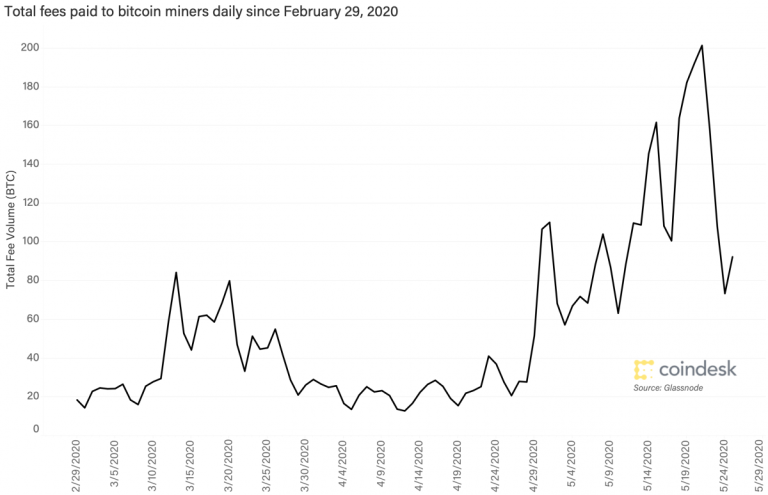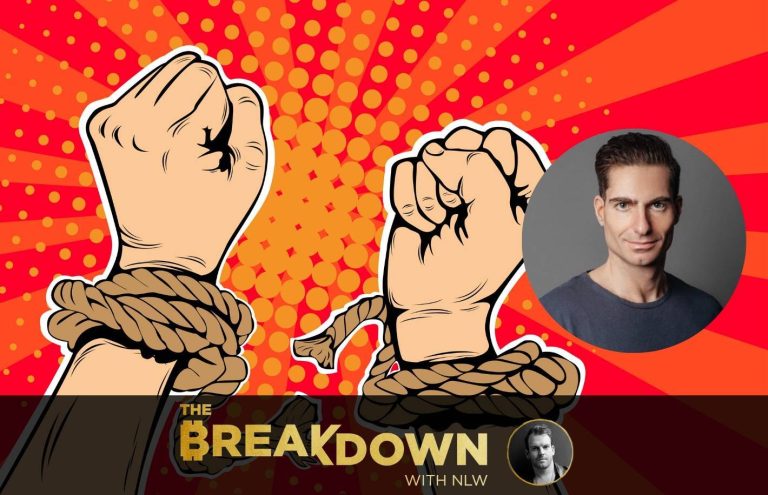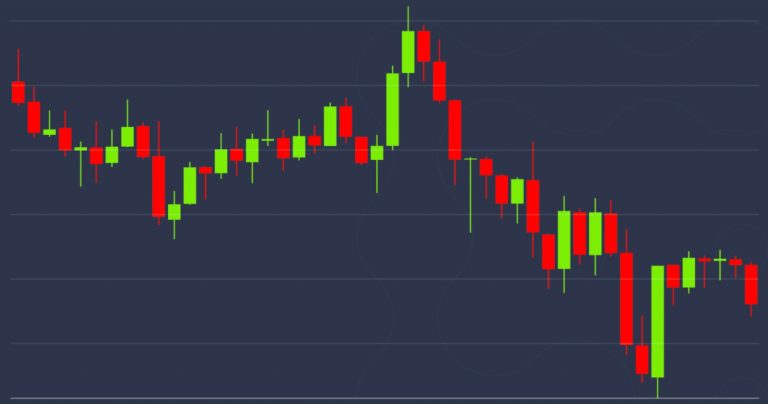First Mover: Chainlink ‘Marines’ Are HODLing and Here’s Why You Should Care
Bitcoin is so speculative and volatile that it doesn’t deserve to be considered an asset class, according to Goldman Sachs.
Diving deeper into the realm of the more than 5,000 cryptocurrencies in existence, things get even more speculative – with traders often jumping on fast-moving and thinly traded tokens for a quick profit and then quickly moving on to the next hot trade.
That’s why it’s so notable that holders of one token, Chainlink (LINK), appear to be in it for the long term.
You’re reading First Mover, CoinDesk’s daily markets newsletter. Assembled by the CoinDesk Markets Team, First Mover starts your day with the most up-to-date sentiment around crypto markets, which of course never close, putting in context every wild swing in bitcoin and more. We follow the money so you don’t have to. You can subscribe here.
Data extracted from the underlying blockchain and cryptocurrency markets reveal declining balances of the token held at exchanges. In the logic of digital-asset traders, that’s seen as a sign that holders of the token have no near-term intention of selling their LINK tokens: After withdrawing the tokens from exchanges, holders are likely either hoard them or send them to be used in smart contracts on the Chainlink blockchain.
High market capitalization and real users is a rare combination for blockchain networks. But with Chainlink, backers of the project are so devoted that they refer to themselves on social media as “LINK Marines” – a sly reference to the community known as the “XRP Army” that supports the eponymously named token from Ripple. The idea is that LINK investors are “HODLing,” an expression that dates back to early cryptocurrency chat forums and refers to long-term, often ideologically motivated investors.
“Chainlink is the most successful blockchain network over the last two years and we still feel like the underdog,” said Michael Anderson, co-founder of Framework Ventures, which published a Chainlink investment thesis in late 2017.
During a year when traditional assets like U.S. stocks are floundering, and bitcoin is up 27%, Chainlink more than doubled, making it the top-performing digital asset among the top 10 ranked by market capitalization, according to OnChainFX. The coin’s market value is now almost $3.8 billion.
Chainlink is a tokenized decentralized network that provides blockchain networks with price feed data collected from sources both on and off blockchains. The protocol offers a potential solution to what is known as the “oracle problem,” or the ability to get the off-chain data needed in many smart contracts. Given that blockchains are intended to operate as “trustless” networks, using outside data requires integrating with a trusted source – an “oracle.”
“As time goes by, there are definitely some questionable projects that break the top-10 market capitalization ranking for crypto,” said Anil Lulla, analyst at cryptocurrency research firm Delphi Digital who recently authored a report on blockchain-based oracles. “It’s very easy to point to a lot of names on that list and see very little to no usage.”
However, the Delphi Digital team was “impressed at some of the early trends we’ve been seeing in usage for Chainlink,” Lulla said.
So is it bullish that LINK Marines are HODLing? It’s tough to say, according to Lulla.
“I just don’t see the connection with the token economics,” Lulla wrote in a Telegram message. “But they’re dominating the oracles space so I think the LINK memers can keep this narrative going for a while.”
A Chainlink spokesperson declined to comment on the data.
In May 2019, the total amount of LINK held on exchanges began to steadily decrease, a trend that would continue for the next 12 consecutive months, according to Glassnode.
Source: CoinDesk Research, Glassnode, CoinMetricsExchange withdrawals coincided with the first significant LINK price inflation when the token traded above $1.00 for the first time. And as more tokens left cryptocurrency exchanges, trading volume steadily grew, according to Nomics.
Source: CoinDesk Research, Glassnode, NomicsSo where where did the LINK tokens taken off exchanges go?
The data suggest that the Marines are sending their tokens to either their own wallets or Chainlink smart contracts. The percentage of LINK supply held by the top 1% of addresses has grown by almost 25% in the past year, according to Glassnode.
Median transfer value fell by 77% over the same period, suggesting that when LINK Marines decide to actually transfer tokens, their transactions are increasingly small.
LINK is also being sent to smart contracts designed to utilize the protocol’s oracle services. According to Glassnode, the year-to-date supply of LINK in smart contracts grew by 1.3% percent.
Source: CoinDesk Research, GlassnodeThe strong price performance has foiled traders who have taken short positions on LINK, betting on a decline in the token’s price.
Such challengers have been “getting their faces ripped off” in markets for over a year, Rob Paone, a popular YouTube crypto personality and startup founder, noted in a March 18 tweet.
At the time of Framework’s investment, according to Anderson, “many of the ‘industry experts’ either said Chainlink was over-engineered,” or that two rival oracle projects, Augur or Uniswap, would ultimately win out.
Yet the young protocol has inked cross-industry partnerships with Google and Tezos, for example.
And the LINK Marines are staying faithful.
Tweet of the dayBitcoin watchSource: TradingView.comTrend: Bitcoin is struggling to maintain momentum after Wednesday’s convincing break above the psychological hurdle of $9,000.
At press time, the number one cryptocurrency by market value is trading near $9,190, having faced rejection at $9,300 during the Asian trading hours.
The pullback has neutralized the immediate bullish view put forward by a falling wedge breakout on the four-hour chart Wednesday. Further, it has established $9,310 – a lower high created May 24 – as strong resistance.
If buyers can push prices past that threshold, a price rally to $9,850 may be seen. That level is currently housing the upper end of the contracting triangle represented by trendlines connecting May 7 and 18 highs, and May 10 and 25 highs.
The overall bias will stay neutral while the cryptocurrency is held withing the three-week-long narrowing price range on the daily chart. A breakout would imply a continuation of the rally from lows below $4,000 seen on March 13 and open the doors for a test of February high of $10,500.
Alternatively, a move below $8,760 would confirm a range breakdown and shift risk in favor of a deeper decline to support at $8,109 (May 10 low) and $7,900 (100-day average).
Sign up to receive First Mover in your inbox, every weekday.Disclosure Read More The leader in blockchain news, CoinDesk is a media outlet that strives for the highest journalistic standards and abides by a strict set of editorial policies. CoinDesk is an independent operating subsidiary of Digital Currency Group, which invests in cryptocurrencies and blockchain startups.









